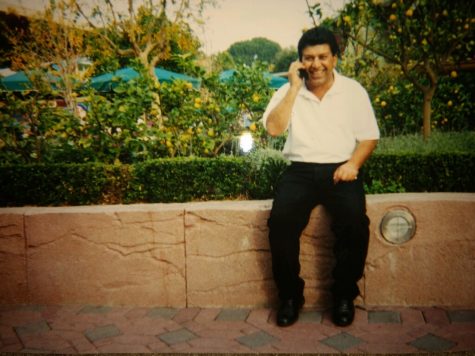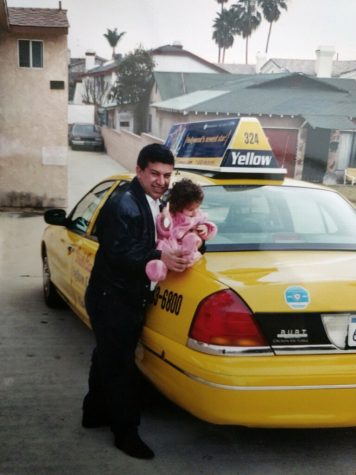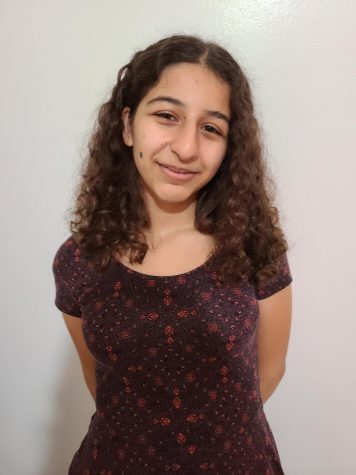‘What makes me look like I am an enemy?’
Taxi Driver Karim Falahahwazi recalls Islamophobic encounters following the 9/11 attacks
19 years later: America remembers. Each and every life lost on this day 19 years ago brings fresh pain to many. Understandably, Americans were shocked and horrified by the attacks of Sept. 11, 2001, and our leaders made one solemn vow: never again. As national security concerns over terrorism took precedence over other issues at the time, some Americans began to express resentment toward Middle-Eastern Americans and Muslims. My father, Karim Falahahwazi, told me about his experiences as an Arab man living in America, and how the attitudes toward Middle-Eastern Americans and Muslims following the events of 9/11 made his job as a taxi driver—and his life as a father and husband—all the more dangerous and unpredictable.

Q. Where were you on the morning of Sept. 11, 2001? What were you doing?
A. “I was in my taxi, driving a passenger to the airport. The passenger was very rude and said, ‘We have to start rounding up people.’ I asked who exactly we should round up, and he said, ‘You know, all these Muslims and stuff.’ He didn’t specifically say that he knew I was Muslim, but I could tell he had some kind of attitude toward me.”
Q. What kind of thoughts were going through your head after you went through that experience?
A. “I was worried about my future in this country. The hatred after 9/11 made it hard to live in this country. You want to go to work, people give you a mean look, they say something racist. I was worried about my kids in this country. They might discriminate against my kids while they’re in school. I didn’t want my kids to go to a place where they didn’t feel welcome.”
Q. Have you had experiences like this prior to 9/11?
A. “I had similar experiences after the Iranian Hostage Crisis back in 1979. It wasn’t as bad as this; the hostage crisis was all the way in Iran, and it was only about 50 Americans. 9/11 was personal. It was on American land. […] I’ve been here for 43 years, came here in 1977. Always, I’ve thought, ‘No matter how many years I’m here, or whether I’m a citizen or I’m legal or anything, it doesn’t matter.’ As soon as they approach me, they ask, ‘Where are you from?’ What does it matter where I’m from? I’m living here. I’m in this country. What difference does it make? Is it a problem, where I’m from? They would always ask me that as soon as they approached me. I’m a citizen, my kids were born here—I’ve had three kids born right here, in America—I went to college here, I worked here, I serviced the public; does that not count? What makes me look like I am an enemy?”
Q. Can you recall any other instances of discrimination you faced after 9/11?
A. “One time I was at a red light. We stopped, and one of the passengers—there were four— asked me, ‘Do you see the same colors that I do? Is that light red to you even though you’re Muslim?’ Can you believe that? I said, ‘Are you kidding me? You think I don’t see the same colors that you do?’ He honestly thought I would run a red light because I couldn’t see that it was red like he could. Can you imagine?”

Q. Were there any acts of violence committed against you for being Middle Eastern?
A. “I’ve had people attack me in the taxi after 9/11. They would try to punch me or push me out of the car. It happened so many times. But you know, those people are ignorant. They are full of hate. They are racist. There’s nothing you can do about it—I’m just one guy. You just deal with it.”
Q. Did this treatment continue long after 9/11?
A. “We were targeted for years after 9/11. The confrontations made me feel angry—and sad. They just look at us, no matter how many years we’ve been in this country, and I’m a U.S. citizen, but they still look at us like we’re the enemy. Any person who looks like they’re from the Middle East, they think we’re bad people. It’s racism, no matter how you look at it.”

This will be my 4th and last year on the High Tide. Some things about me: my cat is my daughter, my favorite color is blue and I will never say no to a nice, juicy lamb kabob... unless you didn't season...


